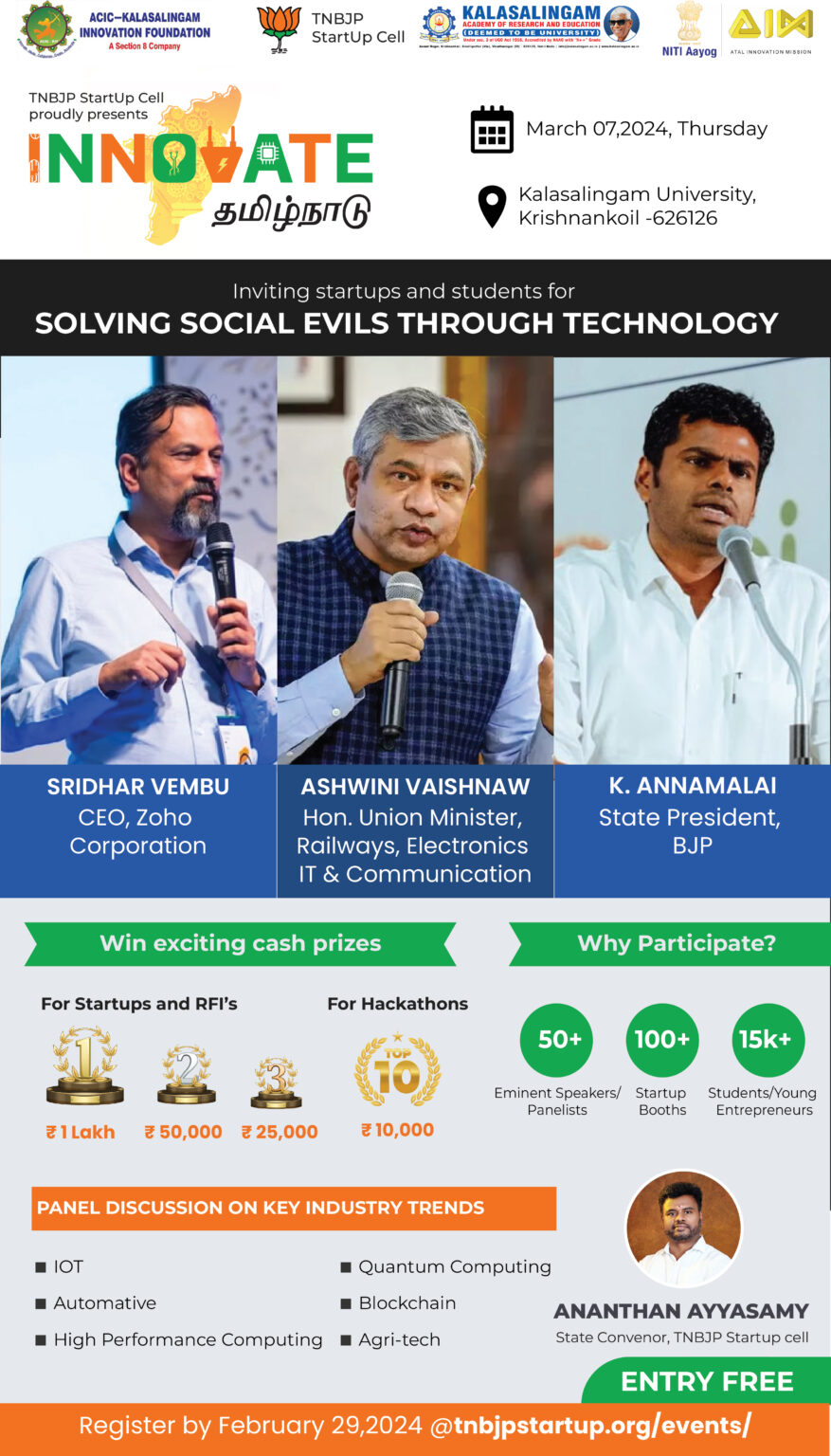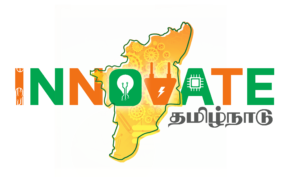Request for Innovation for Funding Support
BJP Startup Unveils India’s First Request for Innovation based Funding Support , Aiming to Catalyze Disruptive Startups

Large Scale Alcohol De-Addiction Therpy using AI/ML
Scope of Request: We are calling for innovative proposals that leverage Artificial Intelligence (AI) and Machine Learning (ML) to develop an effective and scalable alcohol de-addiction program.
Background: Alcohol addiction is a pressing issue in our Tamil population, affecting 12-15 million individuals, particularly exacerbating in recent years. The social and economic burden is immense, with 5 million chronic alcoholics contributing to joblessness and societal disruption. A comprehensive and scalable solution is urgently needed to address this critical challenge.
Key Objectives:
1. Create a scalable solution for large-scale alcohol de-addiction.
2. Provide personalized support through AI-driven interventions.
3. Monitor and analyze user progress for effective recovery.
Personalized Treatment Plans using AI:
Develop sophisticated AI algorithms for in-depth analysis of individual addiction profiles, incorporating aspects such as:
–User Interface (UI):
- Design an intuitive and user-friendly interface for individuals and healthcare professionals to input and access relevant data seamlessly.
- –Video Analytics:
- Integrate video analytics to capture behavioral patterns and responses during personalized treatment sessions.
- –Data Management:
- Implement robust data management systems to organize and process information efficiently.
Consideration of severity, triggers, and co-occurring conditions will form the basis for creating highly tailored de-addiction plans.
Early Intervention using AI:
Implement cutting-edge ML models with a focus on:
- Video Recording:
- Utilize video recording capabilities to monitor early signs of addiction and potential relapse.
- Data Analysis:
- Analyze real-time data to detect subtle changes in behavior, enabling prompt and targeted interventions.
- User Alerts:
- Establish alert systems for both individuals and healthcare providers based on identified risk factors.
Enable timely interventions through proactive monitoring and analysis.
Virtual Support and Counselling:
Create advanced AI-powered tools for comprehensive virtual support:
- AI Chatbots:
- Develop AI-driven chatbots capable of understanding and responding to nuanced emotional cues.
- AI-Assisted Virtual Counsellors:
- Implement virtual counsellors with AI assistance, enhancing the depth and personalization of counseling sessions.
- Video Conferencing:
- Integrate video conferencing features for live virtual sessions, enhancing the quality of support.
Provide 24/7 support and personalized guidance to individuals on their recovery journey through innovative virtual means.
Predictive Analytics:
Employ state-of-the-art predictive models with a focus on:
- Advanced Analytics:
- Utilize advanced analytics techniques for accurate predictions and trend identification.
- Demographic Analysis:
- Incorporate demographic data to anticipate high-risk areas and vulnerable populations.
- AI-Based Risk Scoring:
- Develop AI-based risk scoring incorporating age, gender, education levels, and other relevant factors to enhance precision in identifying at-risk individuals.
Facilitate targeted prevention efforts based on proactive analysis, prediction, and personalized risk scoring.
Community Engagement:
Develop AI-driven platforms fostering community support:
- Social Network Integration:
- Integrate social network analysis to connect individuals with similar experiences for mutual support.
- AI-Assisted Mentors:
- Implement AI-assisted mentor matching algorithms based on shared experiences, recovery stages, and individual preferences.
- User Forums:
- Establish AI-driven forums for shared discussions and collective problem-solving.
Enhance recovery support through dynamic community engagement and personalized AI-assisted mentorship.
Outcome Tracking:
Implement advanced ML algorithms for continuous monitoring and adaptation:
- Dynamic Treatment Plans:
- Develop algorithms that adapt treatment plans in real-time based on changing individual responses.
- Long-Term Outcome Analysis:
- Use ML for long-term outcome analysis to ensure sustained recovery.
- Feedback Mechanism:
- Implement feedback loops for individuals and healthcare professionals to improve treatment plans.
Adapt treatment plans as necessary, ensuring ongoing effectiveness and personalized care with AI-assisted insights.
Expected Performance Outcomes
1. Sustained Lifestyle Transformation:
– Achieve a lasting shift in lifestyle within three months, with individuals breaking free from alcohol or any other substance dependencies like Ganja.
2. Enhanced Well-Being and Relationships:
– Enable individuals to lead a content and fulfilling life free from the shackles of domestic violence and addictive-compulsive behaviours, all within a span of three months.
Eligibility Criteria:
- Registered startup with Private Limited status.
- Incubated Startups from Educational Institutions
- All directors must be Indian Nationals.
- The startup should be registered in Tamil Nadu.
- Preferably, one director should hold MBBS and MD qualifications.
Mandatory Submission Details: Interested parties should submit proposals outlining their AI and ML-based solutions. Proposals must include a working model, having been tested on at least 2000 people of different age groups, with 10% being female alcohol addicts.
Submit proposals to innovatetn2024@tnbjpstartup.org by 28 February 2024.
Deadline for Submissions: 28 February 2024
Contact Information:
tnbjpstartupcell@gmail.com
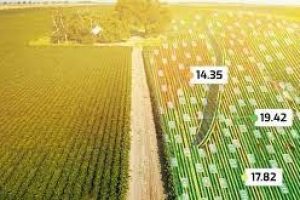
LIDAR Based Corp Yield Productivity Monitoring
Scope of Request: This initiative aims to revolutionize agriculture by leveraging LiDAR technology for precise crop monitoring, management, and yield estimation. By enhancing traditional methods, it seeks to optimize resource utilization and promote sustainable farming practices.
Background: Efficient and precise crop monitoring, management, and yield estimation are critical aspects of modern agriculture. Traditional methods often lack the accuracy and scalability needed for optimal farm resource utilization. This initiative seeks innovative solutions leveraging LIDAR technology to revolutionize crop monitoring, enhance management practices, and improve yield estimation for sustainable agriculture.
Key Objectives:
- Develop a LIDAR-based system for real-time crop monitoring and management, providing accurate insights into crop health, density, and growth.
- Implement a solution for yield estimation using LIDAR data, aiding farmers in making informed decisions throughout the cultivation cycle.
- Enhance the efficiency of agricultural practices by leveraging LIDAR’s capabilities for precise measurements and 3D mapping of crops.
Technical Specifications:
LIDAR-Based Crop Monitoring and Management:
- Real-time Monitoring:
- Implement a system that provides real-time monitoring of crop health, detecting anomalies, and assessing overall plant vitality.
- Crop Density and Growth Analysis:
- Develop algorithms to analyze LIDAR data for accurate measurement of crop density and growth, aiding in optimal spacing and resource allocation.
- Automated Pest and Disease Detection:
- Utilize LIDAR technology to identify signs of pests and diseases early on, enabling proactive and targeted intervention.
Yield Estimation:
- Accurate Yield Prediction:
- Develop algorithms for yield estimation based on LIDAR data, considering factors such as plant height, density, and spatial distribution.
- Integration with Farm Management Systems:
- Ensure seamless integration with existing farm management systems for efficient data utilization and decision-making.
Operational Requirements:
- Scalability:
- Design a scalable solution suitable for various crop types, farm sizes, and geographical locations.
- Data Security:
- Implement robust data security measures to protect sensitive agricultural information collected through LIDAR.
User Interface:
- Intuitive Dashboard:
- Develop an intuitive and user-friendly dashboard that presents LIDAR-derived insights in a comprehensible manner for farmers.
Evaluation Criteria:
- Accuracy:
- Evaluate the accuracy of crop monitoring, management, and yield estimation compared to traditional methods.
- Real-time Capability:
- Assess the system’s ability to provide real-time insights for timely decision-making.
- Scalability:
- Consider the scalability of the solution for application across diverse agricultural scenarios.
- User Interface:
- Evaluate the user interface for its intuitiveness and practicality for farmers.
- Innovation:
- Assess the innovative use of LIDAR technology in addressing agricultural challenges.
Eligibility Criteria:
- Registered startup with Private Limited status.
- Incubated Startups from Educational Institutions
- All directors must be Indian Nationals.
- The startup should be registered in Tamil Nadu.
Mandatory Submission Details: Submit proposals to innovatetn2024@tnbjpstartup.org by 28 February 2024.
Deadline for Submissions: 28 February 2024
Contact Information:
tnbjpstartupcell@gmail.com
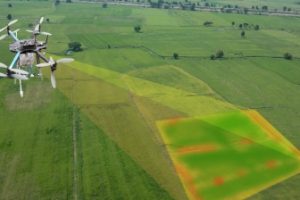
Drone Laser- Pest Elimination
Scope of Request: Develop AI-powered image processing for precision targeting in agricultural practices, utilizing lasers for weed and pesticide management.
Background:
The excessive use of chemical pesticides in agriculture poses severe threats to both the environment and human health. This initiative aims to address this issue by fostering the development of an innovative solution: an AI-driven, laser-based pest control system mounted on drones. This system aims to revolutionize pest control in agriculture, eliminating the need for harmful chemicals, minimizing environmental impact, and promoting sustainable farming practices.
Key Objectives:
- Develop an AI-powered drone-mounted laser unit capable of identifying and eliminating specific pests in agricultural fields.
- Ensure precise targeting to minimize damage to beneficial insects and surrounding vegetation.
- Design a system that is cost-effective, efficient, and scalable for large-scale agricultural operations.
- Explore the integration of renewable energy sources to power the drone and laser unit.
Eligibility Criteria:
- Should be startup registered under Pvt Limited
- Should have received DIPP Startup Certification
- Should have working prototype and MVP for effective demonstration
Technical Specifications:
AI System:
Develop an adaptable AI algorithm that accurately identifies and differentiates between target pests, beneficial insects, and crops using real-time image and sensor data.
Laser Unit:
Design a laser system delivering targeted, high-precision pulses to eliminate pests without harming surrounding plants or beneficial insects.
Explore various laser technologies suitable for pest control applications.
Drone Platform:
Develop or utilize an existing drone platform capable of carrying the laser unit and operating autonomously over agricultural fields.
Ensure stable flight, precise positioning, and efficient navigation within the field.
Integration and Automation:
Seamlessly integrate the AI system, laser unit, and drone platform for efficient and automated pest control operations.
Develop user-friendly interfaces for system control, data monitoring, and route planning.
Evaluation Criteria:
Effectiveness: Accurate identification and elimination of target pests, minimizing damage to non-target organisms.
Efficiency: Speed and accuracy of pest detection and treatment, covering large areas in minimal time.
Scalability: Adaptability to different field sizes, crop types, and pest species.
Cost-effectiveness: Affordability compared to traditional chemical-based methods.
Sustainability: Utilization of renewable energy sources and minimal environmental impact.
Mandatory Submission Details: Submit proposals to innovatetn2024@tnbjpstartup.org by 28 February 2024 in the format we shared.
Deadline for Submissions: 28 February 2024
Contact Information:
tnbjpstartupcell@gmail.com

Cancer Treatment with High-Intensity Ultrasound
Scope of Request: Revolutionize cancer treatment: High-intensity ultrasound waves offer non-invasive precision to target and eliminate tumors.
Background: Traditional cancer treatments, such as chemotherapy, radiation, and surgery, present significant challenges and side effects for patients. This initiative seeks groundbreaking solutions to revolutionize cancer treatment by harnessing High Intensity Ultrasound (HIU) to eliminate cancer cells effectively, bypassing conventional methods.
Key Objectives:
- Develop an advanced High Intensity Ultrasound system for precise and targeted cancer cell destruction.
- Eliminate the need for chemotherapy, radiation, or surgery, minimizing associated side effects.
- Complete research, including a working model, and conduct early-stage trials in collaboration with accredited medical institutions approved by the Government of India.
- Integrate Artificial Intelligence for Medical Imaging to support continuous treatment planning.
- Ensure the filing of a patent application for the developed technology.
Technical Specifications:
High Intensity Ultrasound System:
- Design and implement a versatile HIU system capable of precise targeting and destruction of cancer cells, adaptable for different cancer types and stages.
Research and Working Model:
- Demonstrate a comprehensive understanding of the HIU technology through completed research.
- Present a functional working model of the HIU system.
Clinical Trials:
- Collaborate with accredited medical institutions approved by the Government of India for early-stage clinical trials.
- Provide evidence of safety, efficacy, and feasibility through trial results.
Artificial Intelligence for Medical Imaging:
- Integrate AI to enhance medical imaging for continuous treatment planning, ensuring adaptability to evolving patient needs.
Patent Application:
- Should have filed a patent application for the developed technology to secure intellectual property rights.
Evaluation Criteria:
- Technological Innovation:Assess the uniqueness and effectiveness of the High Intensity Ultrasound system.
- Clinical Trial Results:Evaluate positive outcomes from early-stage trials, demonstrating safety and efficacy.
- Research and Working Model:Examine thorough research and a functional working model of the HIU system.
- Collaboration:Assess strong partnerships with accredited medical institutions approved by the Government of India.
- AI Integration:Evaluate the incorporation of Artificial Intelligence for Medical Imaging and continuous treatment planning.
- Patent Application:Verify evidence of the patent application process for the developed technology.
Eligibility Criteria:
- Registered startup with Private Limited status.
- Incubated Startups from Educational Institutions
- All directors must be Indian Nationals.
- The startup should be registered in Tamil Nadu.
- Preferably, one director should hold MBBS and MD qualifications.
Mandatory Submission Details: Submit proposals to innovatetn2024@tnbjpstartup.org by 28 February 2024.
Deadline for Submissions: 28 February 2024
Contact Information:
tnbjpstartupcell@gmail.com

LIDAR-Based Accident Alert System in Higways
Scope of Request: Develop a high-precision accident alert system using LIDAR technology to improve road safety across diverse terrains, including highways, junctions, valleys, mountain roads, snow-peaked roads, and watery roads. This system should detect collisions, slippages, and other hazards in real-time, triggering timely alerts and potentially enabling preventative measures.
Key Objectives:
- Develop a robust and adaptable LIDAR-based accident alert system prototype.
- Design and implement AI algorithms for real-time collision and slippage prediction.
- Integrate V2X communication for efficient alert dissemination.
- Prototype a user interface for displaying alerts and relevant information to drivers and authorities.
- Explore potential integrations with connected car technologies for preventative measures.
Technology Stack:
-LIDAR (Light Detection and Ranging): High-resolution 3D scanners for real-time obstacle detection and distance measurement.
-Edge Computing: On-board processing of LIDAR data for fast and localized decision-making.
-AI and Machine Learning: Algorithms for object recognition, collision detection, and slippage prediction based on various road conditions.
-Communication Technologies: V2X (Vehicle-to-Everything) communication for real-time alert dissemination to relevant authorities and drivers.
-Cloud Computing: Centralized data storage, analysis, and visualization for system optimization and learning.
Functionalities:
-Real-time Collision Detection: LIDAR and AI will analyze surrounding objects and vehicle dynamics to identify potential collisions, triggering immediate alerts.
-Slippage Prediction: AI algorithms will learn from historical data and real-time road conditions to predict and warn drivers about potential slippages on wet, snowy, or icy roads.
-Environmental Adaptation: The system will be trained and adaptable to diverse road conditions, including valleys, mountains, and snow-peaked areas, ensuring consistent performance.
-Multi-Level Alerts: Different alert levels will be triggered based on the severity of the predicted collision or slippage, allowing for targeted interventions.
-Preventative Measures: Integration with connected car technologies could potentially enable automated braking or steering adjustments to avert accidents.
-Data Analytics and Visualization: The system will collect and analyze data to identify accident hotspots, optimize infrastructure design, and improve overall safety strategies.
Eligibility Criteria:
- Registered startup with Private Limited status.
- Incubated Startups from Educational Institutions
- All directors must be Indian Nationals.
- The startup should be registered in Tamil Nadu.
Mandatory Submission Details: Submit proposals to innovatetn2024@tnbjpstartup.org by 28 February 2024.
Deadline for Submissions: 28 February 2024
Contact Information:
tnbjpstartupcell@gmail.com
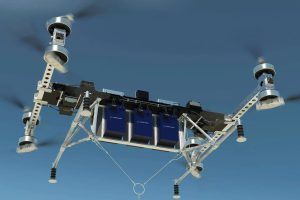
Hi-Altitude Drone for Disaster Management
Scope of Request: In challenging terrains like the Western Ghats, effective disaster management requires innovative solutions. This initiative focuses on developing high-altitude drones for rescue and recovery operations, with versatile applications in disaster management, environmental monitoring, and aerial surveys.
Problem Statement: Effective disaster management, particularly in challenging terrains like the Western Ghats, demands innovative solutions. This initiative aims to develop advanced high-altitude drones tailored for rescue and recovery operations, with versatile applications in disaster management, environmental monitoring, and aerial surveys.
Key Objectives:
- Develop high-altitude drones designed specifically for disaster management operations in the Western Ghats.
- Enable applications in disaster response, environmental monitoring, and aerial surveys.
- Ensure a payload capacity of 95 to 125 KG for effective rescue and recovery missions.
- Achieve a range of 300 KM on a single takeoff to cover vast regions in the Western Ghats.
- Facilitate easy maintenance and operation, including vertical takeoff and landing capabilities at any point in the Western Ghats.
Technical Specifications:
High-Altitude Drone:
- Design a drone system optimized for high-altitude operations in the Western Ghats.
- Facilitate vertical takeoff and landing at any point within the region.
Payload Capacity:
- Ensure a payload capacity ranging from 95 to 125 KG to support diverse rescue and recovery equipment.
Range:
- Achieve a range of 300 KM on a single takeoff to cover extensive areas within the Western Ghats.
Ease of Maintenance:
- Develop a drone system that is easy to maintain, allowing for efficient and timely repairs.
Ease of Operation:
- Implement user-friendly controls and interfaces to facilitate easy operation by disaster management personnel.
Applications: The innovative drone system should open possibilities for applications in disaster management, environmental monitoring, and aerial surveys within the Western Ghats region.
Evaluation Criteria:
- Payload Capacity:Assess the drone’s ability to carry a payload of 95 to 125 KG effectively.
- Range:Evaluate the drone’s capacity to cover a range of 300 KM on a single takeoff.
- Ease of Maintenance:Examine the simplicity and efficiency of maintenance procedures.
- Ease of Operation:Evaluate user-friendly controls for seamless operation by disaster management personnel.
- Versatility:Consider the potential applications in disaster management, environmental monitoring, and aerial surveys.
Eligibility Criteria:
- Registered startup with Private Limited status.
- Incubated Startups from Educational Institutions
- All directors must be Indian Nationals.
- The startup should be registered in Tamil Nadu.
Mandatory Submission Details: Submit proposals to innovatetn2024@tnbjpstartup.org by 28 February 2024.
Deadline for Submissions: 28 February 2024
Contact Information:
tnbjpstartupcell@gmail.com
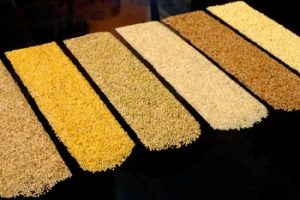
Extending Shelf Life of Processed Millets
Scope of Request: This initiative addresses a key challenge in millet agriculture: the limited shelf life of millet-based products. By seeking innovative solutions, it aims to extend their shelf life, ensuring greater availability and preserving their nutritional value for consumers.
Background: Despite the nutritional benefits and rising popularity of millets, one significant challenge faced in the millet agriculture sector is the limited shelf life of processed millets, millet flours, and millet products. This initiative seeks innovative solutions to extend the shelf life of these millet-based products, enhancing their availability and preserving their nutritional value.
Key Objectives:
1. Develop a generative design AI system capable of creating innovative and customizable fabric patterns.
2. Implement algorithms that analyze design preferences, trends, and user inputs to generate diverse and appealing textile patterns.
3. Enable real-time customization options for users, allowing them to tailor fabric designs according to their preferences.
Technical Specifications:
- Preservation Techniques:
- Propose innovative preservation techniques (chemical, physical, or biological) that can effectively extend the shelf life of processed millets and millet products.
- Packaging Solutions:
- Develop packaging solutions that create a protective environment to prevent moisture, oxidation, and external contaminants, contributing to prolonged shelf life.
- Nutritional Preservation:
- Ensure that the proposed solutions do not adversely affect the nutritional content of millets, maintaining their rich nutritional profile.
- Taste and Quality Retention:
- Preserve the taste, texture, and overall quality of millet products throughout the extended shelf life period.
- Environmentally Friendly Approaches:
- Explore eco-friendly methods for shelf life extension, aligning with sustainable agriculture and reducing environmental impact.
Operational Requirements:
- Compatibility with Processing Units:
- Ensure that the proposed solutions are practical and compatible with existing millet processing units and facilities.
- Ease of Implementation:
- Develop solutions that are easy to implement and integrate into existing millet processing and packaging workflows.
Evaluation Criteria:
- Shelf Life Extension:
- Assess the effectiveness of the proposed solutions in extending the shelf life of processed millets and millet products.
- Nutritional Preservation:
- Evaluate the impact of the proposed methods on the nutritional content of millet-based products.
- Quality Retention:
- Consider the ability of the solutions to retain the taste, texture, and overall quality of millet products.
- Compatibility:
- Evaluate the compatibility of the proposed solutions with existing millet processing units and facilities.
- Sustainability:
- Assess the environmental impact and sustainability of the proposed shelf life extension methods.
Eligibility Criteria:
- Registered startup with Private Limited status.
- Incubated Startups from Educational Institutions
- All directors must be Indian Nationals.
- The startup should be registered in Tamil Nadu.
Mandatory Submission Details: Submit proposals to innovatetn2024@tnbjpstartup.org by 28 February 2024.
Deadline for Submissions: 28 February 2024
Contact Information:
tnbjpstartupcell@gmail.com

Long Range Hi-Performance Sodium-Ion Battery
Scope of Request: The EV industry aims to enhance vehicle range and charging speed. Seeking solutions, an initiative explores sodium-ion batteries for 2-wheelers, targeting extended range and rapid charging.
Problem Statement: The electric vehicle (EV) industry faces the challenge of extending the range and endurance of vehicles while ensuring faster charging times. Lithium-ion batteries, although widely used, have limitations. This initiative seeks innovative solutions in the form of cathode material-based sodium-ion batteries for 2-wheelers, aiming for extended range, high efficiency, and rapid charging.
Key Objectives:
- Develop a sodium-ion battery with cathode material for two-wheelers to achieve long-range capabilities and high endurance.
- Ensure a full charging time under 40 minutes, addressing the need for faster charging.
- Achieve a range of up to 1200 kilometers on a single charge for 2-wheelers.
- Attain efficiency levels five times higher than current lithium-ion batteries.
Technical Specifications:
Cathode Material-Based Sodium-Ion Battery:
- Design and implement a sodium-ion battery with a cathode material optimized for 2-wheelers.
- Demonstrate enhanced operational, performance, and functional attributes.
Operational Requirements:
- Long-range capabilities for extended journeys.
- High-endurance for prolonged battery life.
- Full charging time under 40 minutes for user convenience.
Performance Requirements:
- Achieve a range of up to 1200 kilometers on a single charge for 2-wheelers.
- Demonstrate 3X higher efficiency compared to lithium-ion batteries.
Safety Requirements:
- Ensure compliance with industry safety standards for sodium-ion battery usage.
- Implement fail-safes and protective measures to prevent overheating and other safety hazards.
Ease of Production:
- Develop a production process that is scalable, cost-effective, and environmentally friendly.
Fast Charging:
- Enable fast charging technology, allowing a full charge in under 40 minutes.
Evaluation Criteria:
- Range and Endurance:Evaluate the battery’s capability to achieve a range of up to 1200 kilometers and high endurance for prolonged life.
- Efficiency:Assess the efficiency of the sodium-ion battery, targeting 3X higher efficiency than current lithium-ion batteries.
- Operational and Performance Attributes:Examine detailed operational, performance, and functional specifications.
- Safety Measures:Ensure compliance with safety standards and the implementation of protective measures.
- Ease of Production:Evaluate the scalability, cost-effectiveness, and environmental impact of the production process.
- Fast Charging:Verify the capability to achieve a full charge in under 40 minutes.
Eligibility Criteria:
- Registered startup with Private Limited status.
- Incubated Startups from Educational Institutions
- All directors must be Indian Nationals.
- The startup should be registered in Tamil Nadu.
Mandatory Submission Details: Submit proposals to innovatetn2024@tnbjpstartup.org by 28 February 2024.
Deadline for Submissions: 28 February 2024
Contact Information:
tnbjpstartupcell@gmail.com
HACKATHONS
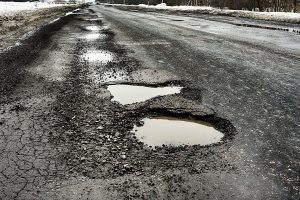
Saving Riders, One Pothole at a Time: AI-powered Pothole Detection and Risk Assessment for Safer Roads
Scope of Request: Develop innovative AI and computer vision solutions to detect and assess potholes on public roads, reducing accidents for two-wheeler riders.
Key Objectives:
Every year, potholes cause countless accidents and injuries, especially for two-wheeler riders. This hackathon challenges you to develop innovative solutions using Artificial Intelligence (AI) and computer vision to identify and characterize potholes on public roads, ultimately predicting their risk level for two-wheeler riders.
Themes:
- Pothole Detection:Design AI algorithms that analyze images or videos captured from smartphones, dashcams, or dedicated sensors to accurately detect and localize potholes on various road surfaces.
- Pothole Characterization:Develop AI models that estimate the size, depth, and severity of potholes, considering factors like surrounding pavement condition and weather.
- Risk Assessment for Two-Wheelers:Create AI-powered systems that predict the risk posed by individual potholes to two-wheeler riders, considering factors like vehicle type, speed, and rider behavior.
- Real-Time Alerts and Mapping:Design systems that generate real-time alerts for riders about nearby potholes and contribute to crowdsourced pothole maps for authorities and the public.
- Data-Driven Solutions:Develop tools that analyze pothole data to identify hotspots, understand contributing factors, and prioritize repair efforts.
Technologies:
- Computer Vision
- Deep Learning
- Object Detection and Segmentation
- Image Processing
- Sensor Fusion (e.g., camera, LiDAR)
- Mobile App Development
- Data Analytics and Visualization
Judging Criteria:
- Accuracy:Effectiveness of pothole detection, characterization, and risk assessment algorithms.
- Innovation:Originality and technical complexity of the solution.
- Impact:Potential to improve road safety and reduce accidents for two-wheeler riders.
- Scalability and Sustainability:Feasibility for real-world implementation and long-term use.
- User Experience:Clarity, accessibility, and value of the solution for riders and stakeholders.
Eligibility Criteria:
- Engineers, data scientists, developers, students, and anyone passionate about using AI for social good.
- Individuals or teams of up to 5 members.
Mandatory Submission Details: Submit proposals to innovatetn2024@tnbjpstartup.org by 29 February 2024.
Deadline for Pitch Deck Submissions: 29 February 2024
Contact Information:
tnbjpstartupcell@gmail.com

Millet Supply Chain Traceability using Blockchain and Videos
Scope of Request: Modernize millet supply chains using geo-tagging, blockchain, and nutritional analysis. Develop a solution ensuring transparency and quality from farm to store.
Key Objective:
Revolutionize millet supply chain traceability using advanced technologies, including geo-tagging, blockchain, and nutritional content analysis. The hackathon aims to develop an end-to-end solution for tracking millets from harvesting locations to retailer stores, ensuring transparency, quality assurance, and nutritional integrity.
Key Technologies:
- Geo-tagging:Geo-location technology for tracking the precise origin of millet harvests.
- Blockchain:Distributed ledger technology for transparent and secure record-keeping.
- Nutritional Content Analysis:Integration of tools to analyze and record the nutritional content of millets.
Functional Requirements:
- Geo-tagging Harvest Locations:
- Develop a system for geo-tagging millet harvest locations, providing precise information on the origin of the millets.
- Blockchain Integration:
- Implement blockchain for secure and transparent recording of millet processing, packaging, and distribution stages.
- Ensure that the blockchain ledger is accessible to all stakeholders, including farmers, processors, distributors, and retailers.
- Nutritional Content Analysis:
- Integrate tools for analyzing and recording the nutritional content of millets at various stages of the supply chain.
- Packaging Traceability:
- Develop a system for tracing the origin and processing details of millets based on packaging information.
- Real-time Updates:
- Provide real-time updates on the movement and status of millet batches throughout the supply chain.
Operational Requirements:
- User-Friendly Interfaces:
- Create user-friendly interfaces for farmers, processors, distributors, retailers, and consumers to access and input data.
- Interoperability:
- Ensure interoperability of the solution with existing agricultural and supply chain systems.
Evaluation Criteria:
- Geo-tagging Accuracy:
- Evaluate the accuracy and precision of the geo-tagging system in capturing millet harvest locations.
- Blockchain Security:
- Assess the security and transparency of the blockchain ledger, ensuring resistance to tampering or unauthorized access.
- Nutritional Content Analysis:
- Evaluate the effectiveness of tools for nutritional content analysis and their integration into the traceability system.
- Real-time Updates:
- Assess the efficiency and reliability of real-time updates on millet batches in the supply chain.
- User-Friendly Interfaces:
- Evaluate the ease of use of interfaces for various stakeholders, considering their technological proficiency.
- Scalability:
Consider the scalability of the solution to accommodate a growing volume of millet transactions and stakeholders.
Eligibility Criteria: Open to all current students and graduates of educational institutions in Tamil Nadu.
Mandatory Submission Details: Submit proposals to innovatetn2024@tnbjpstartup.org by 29 February 2024.
Deadline for Pitch Deck Submissions: 29 February 2024
Contact Information:
tnbjpstartupcell@gmail.com

Sand Erosion Detection
Scope of Request: Develop an AI-powered solution to analyze Google Satellite Images spanning decades and accurately measure and quantify sand erosion levels in riverbeds. This project is designed for AI professionals and aerial photo experts to showcase their skills and collaborate in tackling a real-world environmental challenge.
Key Objectives:
- Train a machine learning model to automatically detect and quantify sand erosion in riverbeds using historical and recent satellite images.
- Develop a user-friendly interface for visualizing erosion patterns and quantifying erosion volumes.
- Identify factors influencing erosion rates (e.g., rainfall, human activities).
- Generate insights and recommendations for sustainable river management practices.
Data:
- Google Earth Engine provides access to historical and recent high-resolution satellite imagery for the target river basin(s).
- Additional datasets like rainfall data, land cover maps, and river discharge records can be incorporated for enhanced analysis.
Technical Tasks:
- Image Preprocessing:Normalize, segment, and preprocess historical and recent satellite images for consistent analysis.
- Change Detection:Employ deep learning techniques (e.g., U-Net, LSTMs) to identify areas of sand erosion and quantify changes over time.
- Erosion Level Quantification:Develop algorithms to calculate sand volume changes based on pixel-level analysis and geospatial information.
- Factor Analysis:Explore correlations between erosion rates and potential influencing factors using statistical and machine learning methods.
- Visualization and Reporting:Design an interactive dashboard to visualize erosion patterns, quantify volumes, and present insights for stakeholders.
Evaluation Criteria:
- Accuracy of sand erosion detection and quantification.
- Robustness to variations in image quality and environmental conditions.
- User-friendliness and clarity of the visualization interface.
- Actionable insights and recommendations for river management.
Additional Considerations:
- Incorporate domain expertise from aerial photo experts to validate and refine the model’s performance.
- Explore explainable AI techniques to understand the model’s decision-making process.
- Consider scalability and potential deployment of the solution for real-world applications.
Eligibility Criteria: Open to all current students and graduates of educational institutions in Tamil Nadu.
Mandatory Submission Details: Submit proposals to innovatetn2024@tnbjpstartup.org by 29 February 2024.
Deadline for Pitch Deck Submissions: 29 February 2024
Contact Information:
tnbjpstartupcell@gmail.com

- Predictive Seed Classification Model
Scope of Request:Farmers constantly face the challenge of selecting the right seeds for their specific land and weather conditions. Traditional methods often rely on experience or limited data, leading to suboptimal yields and potential losses. This hackathon invites participants to leverage the power of Artificial Intelligence (AI) to develop a seed classification system that predicts potential yield based on historical data and various soil/climate factors.
Key Objectives:
1.Develop an AI model that accurately classifies different seed types based on historical data sets containing:
-Seed quality indicators (germination rate, purity, etc.)
-Seed type information (variety, species, etc.)
-Yield data per hectare (historical production under different conditions)
2. Integrate the AI model with additional data inputs, including:
-Soil composition analysis
-Weather forecasts and historical trends
-Specific farm characteristics (location, irrigation methods, etc.)
3. Create a user-friendly interface for farmers to interact with the system and get personalized recommendations:
-Recommend the most suitable seed type for their specific land and conditions.
-Predict expected yield based on their chosen seed and specific inputs.
-Offer insights into potential risks and mitigation strategies.
Data Provided:
- A large dataset of historical seed quality, seed type, and yield data per hectare.
- Sample soil composition analysis data and weather forecast APIs.
Evaluation Criteria:
- Accuracy:The accuracy of the AI model in predicting seed type and potential yield.
- User-friendliness:The ease of use and accessibility of the interface for farmers.
- Actionable insights:The quality and practicality of the recommendations provided to farmers.
- Potential impact:The projected impact of the solution on farmers’ decision-making and crop yields.
Eligibility Criteria: Open to all current students and graduates of educational institutions in Tamil Nadu.
Mandatory Submission Details: Submit proposals to innovatetn2024@tnbjpstartup.org by 29 February 2024.
Deadline for Pitch Deck Submissions: 29 February 2024
Contact Information:
tnbjpstartupcell@gmail.com

Revolutionizing Quality Assurance in Auto Manufacturing with HD Images and LiDAR
Scope of Request: Traditional QA methods often involve manual inspections, which are time-consuming and prone to errors. We challenge you to harness the power of High-Definition Images and LiDAR technology to create innovative solutions. Let's transform QA processes for safer and more efficient vehicles.
Key Objectives:
The automobile manufacturing industry relies heavily on quality assurance (QA) to ensure the safety and functionality of vehicles. Traditional methods often involve manual inspections, which are time-consuming, subjective, and prone to errors. This hackathon challenges you to develop innovative solutions using High-Definition (HD) Images and LiDAR (Light Detection and Ranging) technology to revolutionize QA processes in auto manufacturing.
Themes:
- Automated Defect Detection:Develop AI-powered algorithms that analyze HD images and LiDAR data to automatically identify and classify defects on car bodies, welds, paintwork, and other components.
- Real-Time Inspection:Create systems that integrate HD cameras and LiDAR sensors for real-time inspection on production lines, flagging potential issues immediately.
- Predictive Maintenance:Leverage AI and sensor data to predict component failures and recommend preventive maintenance actions, reducing downtime and costs.
- Virtual Inspections:Design immersive virtual reality (VR) environments that allow inspectors to remotely examine vehicles using 3D reconstructions from HD images and LiDAR scans.
- Data-Driven Insights:Develop tools that analyze QA data from HD images and LiDAR to identify trends, improve processes, and optimize production quality.
Technologies:
- High-Definition Cameras
- LiDAR Sensors
- Artificial Intelligence (AI) and Machine Learning (ML)
- Computer Vision
- Cloud Computing
- Virtual Reality (VR)
- Data Analytics
Judging Criteria:
- Innovation:Originality and technical complexity of the solution.
- Impact:Potential to improve efficiency, accuracy, and cost-effectiveness of QA processes.
- Feasibility:Clarity, practicality, and potential for real-world implementation.
- Demonstration:Effective presentation and live demo of the solution.
Mandatory Submission Details: Submit proposals to innovatetn2024@tnbjpstartup.org by 29 February 2024.
Deadline for Pitch Deck Submissions: 29 February 2024
Contact Information:
tnbjpstartupcell@gmail.com

Reimagining Tamil Vocabulary through Generative AI
Scope of Request: Tamil's richness faces a digital challenge: limited vocabulary for new concepts. This hackathon seeks innovative solutions to revitalize Tamil for the modern era.
Key Objectives:
Develop generative AI algorithms to create a comprehensive and inclusive Tamil vocabulary for contemporary needs. Focus on:
- Identifying: Analyzing technical and domain-specific text in English and other languages to identify essential verbs, nouns, and terms lacking Tamil equivalents.
- Adapting: Utilizing LLMs and Natural Language Processing (NLP) techniques to creatively adapt and translate identified terms into grammatically sound and culturally appropriate Tamil vocabulary.
- Integrating: Ensuring seamless integration of new vocabulary into existing Tamil lexicon, considering regional variations and dialects.
- Evaluating: Implementing quality control measures to evaluate the accuracy, naturalness, and cultural sensitivity of generated vocabulary.
Hackathon Tracks:
- Vocabulary Generation: Develop the most effective LLM-based approach for generating new Tamil vocabulary.
- Cultural Sensitivity: Ensure generated vocabulary respects Tamil linguistic and cultural nuances.
- Domain Specificity: Focus on specific domains like technology, science, finance, or law, tailoring solutions to each domain’s terminology needs.
- Open Innovation: Explore alternative approaches beyond LLMs for vocabulary expansion.
Evaluation Criteria:
- Accuracy: Grammatical correctness and adherence to Tamil language rules.
- Naturalness: Fluidity and seamless integration into existing vocabulary.
- Cultural Sensitivity: Respect for regional variations and avoidance of offensive or insensitive terms.
- Domain Specificity: Effectiveness in addressing the needs of the chosen domain.
- Impact Potential: Scalability and potential for real-world application in enriching Tamil vocabulary.
Eligibility Criteria: Open to all current students and graduates of educational institutions in Tamil Nadu.
Mandatory Submission Details: Submit proposals to innovatetn2024@tnbjpstartup.org by 29 February 2024.
Deadline for Pitch Deck Submissions: 29 February 2024
Contact Information:
tnbjpstartupcell@gmail.com
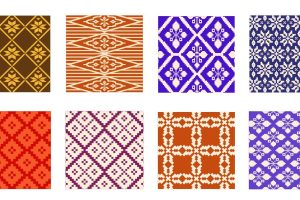
Textile Design using Generative AI
Scope of Request: Develop an AI-powered platform that revolutionizes textile design by predicting and generating innovative, market-viable fabric patterns based on user input and fashion trends.
Key Objectives:
1. Develop a generative design AI system capable of creating innovative and customizable fabric patterns.
2. Implement algorithms that analyze design preferences, trends, and user inputs to generate diverse and appealing textile patterns.
3. Enable real-time customization options for users, allowing them to tailor fabric designs according to their preferences.
Data:
- Historical textile design data:Images, descriptions, sales figures of past successful designs.
- Fashion trend data:Runway shows, social media trends, consumer preferences.
- Color data:Color palettes, psychology of colors, color trends.
- Material data:Properties of different fabrics, printing techniques, sustainability factors.
AI Techniques:
- Machine Learning:Train models to predict popular designs based on historical data and fashion trends.
- Generative Adversarial Networks (GANs):Generate unique, high-quality textile patterns based on learned features.
- Computer Vision:Analyze existing designs and extract key elements like color, texture, and patterns.
- Natural Language Processing (NLP):Understand user preferences and translate them into design parameters.
Project Components:
- Web-based interface:Allow users to input desired colors, styles, target audience, and material preferences.
- AI engine:Generate multiple unique textile pattern options based on user input and data analysis.
- Visualization tools:Display patterns in different colorways and on various fabric textures.
- Feedback mechanism:Users can rate and provide feedback on generated patterns to improve the AI model.
- Trend analysis module:Show users emerging trends in the fashion industry and suggest relevant design elements.
- Sustainability integration:Recommend eco-friendly materials and printing techniques based on user choices.
Evaluation Criteria:
- Originality and creativity of generated designs.
- Alignment with user preferences and market trends.
- Technical feasibility and scalability of the platform.
- Ease of use and user experience.
- Potential impact on the textile design industry.
Additional Ideas:
- Integrate with existing design software for seamless workflow.
- Partner with fashion brands for real-world testing and feedback.
- Develop a marketplace for designers to sell and share AI-generated patterns.
- Offer customization options like personalizing patterns with user-uploaded images or logos.
Eligibility Criteria: Open to individuals, teams, and organizations with expertise in AI and ML.
Mandatory Submission Details: Submit proposals to innovatetn2024@tnbjpstartup.org by 29 February 2024.
Deadline for Pitch Deck Submissions: 29 February 2024
Contact Information:
tnbjpstartupcell@gmail.com

AI-Based Seed Quality Grading Hackathon for Precision Farming
Scope of Request: This hackathon aims to revolutionize agriculture using AI and Computer Vision to rapidly grade seed quality. The goal is to empower farmers with accurate assessments on seed grade, quality, and yield. The solution targets scanning and grading up to 1000 seeds per second with a minimum accuracy of 90%.
Key Objectives: Revolutionize agriculture with cutting-edge AI and Computer Vision technologies by developing a system for rapid seed quality grading. Empower farmers to make informed decisions on seed grade, quality, yield, and more. The hackathon aims to create a solution capable of scanning and grading up to 1000 seeds per second with a minimum accuracy of 90%.
Key Technologies:
- Generative AI:Leverage Generative AI to enhance the accuracy of seed quality grading and generate insights for farmers.
- Computer Vision:Utilize advanced Computer Vision techniques to analyze and interpret seed characteristics swiftly and accurately.
Functional Requirements:
- Speed and Volume:
- Develop a system capable of scanning and grading a minimum of 1000 seeds per second.
- Ensure efficient processing to provide real-time results for farmers.
- Accuracy:
- Achieve a minimum accuracy rate of 90% in seed quality grading.
- Implement mechanisms to continually improve accuracy through machine learning iterations.
- Seed Characteristics:
- Identify and grade seeds based on parameters such as size, shape, color, and texture.
- Differentiate between viable and non-viable seeds.
- User Interface:
- Design an intuitive and user-friendly interface accessible to farmers with varying levels of technological expertise.
- Scalability:
- Develop a scalable solution that can be easily integrated into existing farming processes.
- Ensure compatibility with diverse seed types and crops.
- Data Security:
- Implement robust data security measures to protect sensitive information about seeds and farming practices.
Evaluation Criteria:
- Speed and Efficiency:Speed of seed scanning and grading, processing at least 1000 seeds per second.
- Accuracy:Achieve a minimum of 90% accuracy in seed grading.
- Innovation:Creative use of Generative AI and Computer Vision technologies.
- User Interface:Intuitiveness and accessibility of the user interface for farmers.
- Scalability:The potential for seamless integration into diverse farming practices.
Eligibility Criteria: Open to all current students and graduates of educational institutions in Tamil Nadu.
Mandatory Submission Details: Submit proposals to innovatetn2024@tnbjpstartup.org by 29 February 2024.
Deadline for Pitch Deck Submissions: 29 February 2024
Contact Information:
tnbjpstartupcell@gmail.com
Other Startup
Attention all innovative startups! Are you ready to showcase your groundbreaking ideas and solutions to a diverse audience? Join us at our upcoming startup event where creativity knows no bounds. While we’re excited to feature specific Request for Innovations (RFIs) and hackathon challenges, we welcome startups with a wide array of topics and interests to participate. Whether your focus lies in AI, sustainability, healthcare, or beyond, this is your opportunity to shine. Don’t miss out on this chance to be part of a dynamic community driving innovation forward. Sign up now and let your entrepreneurial spirit soar!
Women Led startups
Attention all pioneering women entrepreneurs! Are you prepared to demonstrate the strength of female innovation and leadership? Join us at our upcoming startup event tailored specifically for women-led ventures. While we’re thrilled to showcase specific Request for Innovations (RFIs) and hackathon challenges, we warmly welcome women-led startups from all sectors to participate. Whether your expertise lies in technology, finance, education, or any other domain, this is your moment to shine. Connect with fellow female visionaries, present your revolutionary ideas to potential investors, and seize the opportunity to cultivate invaluable connections that could propel your startup to greatness. Don’t miss this empowering event crafted to celebrate and empower women in entrepreneurship. Secure your spot now and let your brilliance illuminate the startup landscape!

